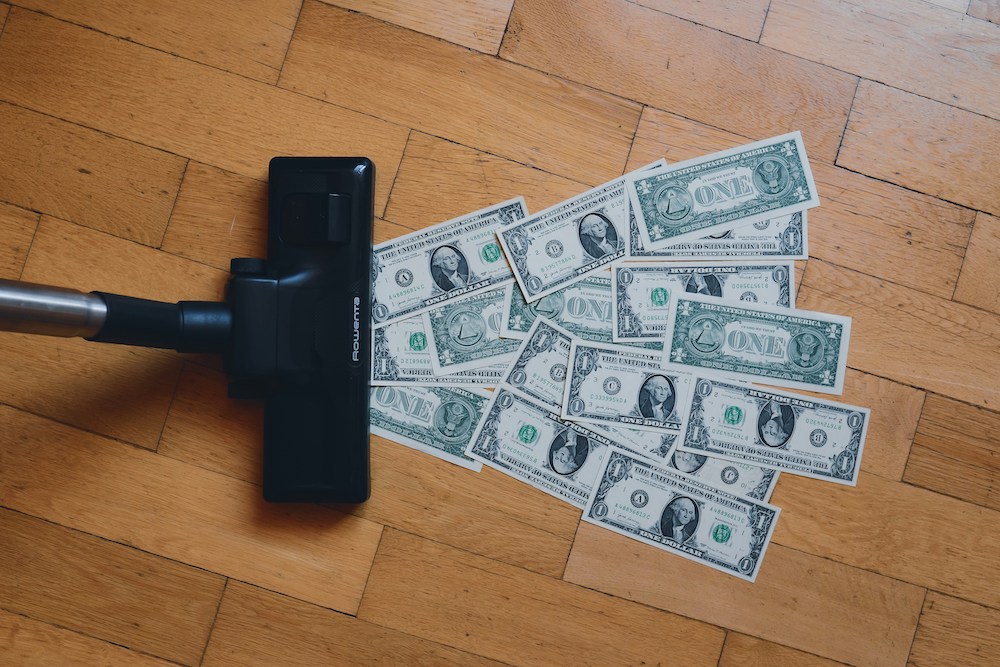Imagine tucking away a crisp $100 bill under your mattress today. Ten years down the line, you pull it out, eager for a celebratory purchase. But to your surprise, that same $100 might only buy you a basket of groceries that cost $90 back then. This, my friend, is the insidious power of inflation at work.
Related Article: Strategies for Making the Most of Your Fixed Income
Inflation, the gradual increase in prices of goods and services over time, acts like a silent thief, slowly eroding the purchasing power of your hard-earned cash. While keeping a stash of cash for emergencies is prudent, holding onto a significant amount as a long-term strategy can be detrimental. This article delves into the intricate relationship between inflation, purchasing power, and why alternative strategies might be better suited for safeguarding your financial future.
Understanding Purchasing Power
Purchasing power essentially refers to the amount of goods and services you can acquire with a specific amount of money. It's a dynamic concept, heavily influenced by inflation. Let's use a relatable example. In the 1950s, a dollar could buy you a gallon of milk, a loaf of bread, and maybe even a movie ticket. Today, that same dollar wouldn't even cover the milk. This illustrates how inflation shrinks the buying power of your currency. As prices rise, your dollar stretches less, forcing you to spend more to maintain the same standard of living.
The Slow Drain: Inflation's Impact
Inflation rates are typically measured as a percentage increase in the Consumer Price Index (CPI) - a basket of essential goods and services. While a low and controlled level of inflation (around 2-3%) is considered healthy for a growing economy, persistently high inflation rates spell trouble for consumers. Here's how inflation eats away at your purchasing power:
Reduced Value of Savings
Let's say you diligently save $10,000 for a dream vacation. If inflation is at a steady 5% annually, in five years, your $10,000 won't be able to cover the same vacation expenses due to rising travel and accommodation costs. The purchasing power of your savings diminishes with each passing year eroded by inflation.
Impact on Long-Term Goals
Whether it's saving for retirement, a down payment on a house, or your children's education, long-term financial goals require careful planning and saving. Inflation throws a wrench into these plans. The money you've saved today might not be enough to cover future costs due to inflation's relentless march.
Stress on Fixed Incomes
For individuals on fixed incomes like pensions or social security, inflation can be particularly challenging. Their income remains constant, while the cost of living steadily rises. This can lead to financial strain and a reduced standard of living.
Beyond the Mattress:
Strategies to Combat Inflation
Fortunately, you're not powerless against inflation. Here are some proactive strategies you can employ to protect your purchasing power:
High-Interest Savings Accounts: Earn While You Save
You don't have to jump straight into the stock market to fight inflation. High-interest savings accounts have become a game-changer, offering interest rates that can keep pace with, and sometimes even outpace, inflation. These accounts are a fantastic way to make your money work for you while keeping it readily accessible.
Negotiate Raises
In an inflationary environment, salary increases become even more crucial. Regularly discuss cost-of-living adjustments with your employer to ensure your income keeps up with rising prices.
Embrace Smart Budgeting
A well-crafted budget allows you to track expenses and identify areas where you can cut back. By optimizing your spending and prioritizing needs over wants, you can free up additional funds to invest or save, mitigating the impact of inflation.
Explore Debt Strategically
While debt can be a burden, strategic use of low-interest debt like mortgages can be beneficial in an inflationary environment. As inflation pushes prices up, the value of your debt remains constant, effectively reducing it over time.
The Time Is Now
Inflation may be inevitable, but its impact on your financial well-being doesn't have to be. By understanding how inflation erodes purchasing power and implementing proactive strategies like investing and smart budgeting, you can safeguard your financial future. Remember, the sooner you start planning and taking action, the better equipped you'll be to weather the storms of inflation and achieve your long-term financial goals.


.png?width=1200&height=400&name=Personal%20Loan%20(5).png)
